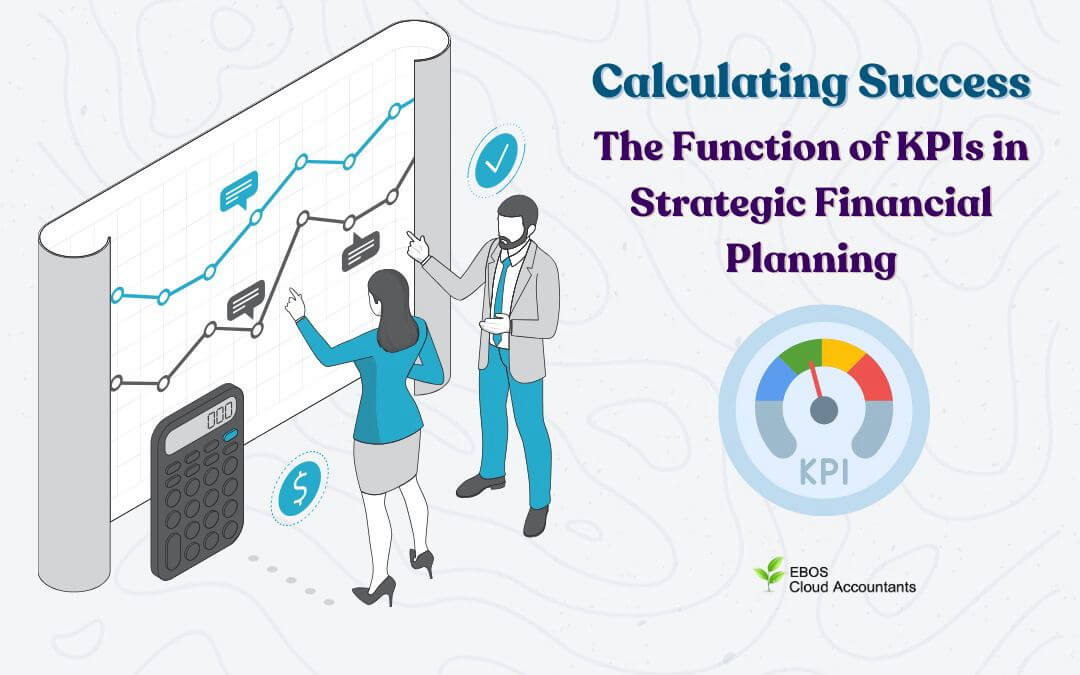Key Performance Indicators (KPIs) are quantitative measurements used to assess an organization’s, department’s, project’s, or individual’s success or performance in accomplishing defined goals and objectives.
KPIs are significant in financial planning for a variety of reasons, including the fact that they provide measurable indicators for firms to analyze their financial health, track progress toward targets, and make educated strategic decisions.
In this article, we will look at how KPIs can help with strategic financial planning.
The Importance of KPIs in Financial Planning
Financial key performance indicators (KPIs) assess an organization’s overall performance and progress toward specified goals. Identifying and tracking these metrics is a critical component of sound financial planning. It can help with resource allocation decisions to promote profitability and sustainability.
KPIs offer a defined and quantitative method of assessing the success of financial actions and initiatives. Financial performance of organizations can be measured against set benchmarks and objectives.
Several KPIs Used in Financial Planning
Different types of Key Performance Indicators (KPIs) are used in financial planning to analyze and monitor various aspects of an organization’s financial health and performance.
- Revenue Growth Rate: This metric calculates the percentage increase in revenue over a certain time period.
- Debt-to-Equity Ratio: The ratio of debt used to fund a company’s assets to shareholders’ equity.
- Budget Variance: The difference between actual and budgeted financial results.
- Operating Cash Flow Ratio: This ratio assesses a company’s ability to generate cash from its operations.
- Client Acquisition Cost (CAC): Calculates the cost of gaining a new client.
What Makes up a Good Financial Planning KPI?
To begin, it is critical to understand what constitutes a good KPI. Simply because something may be tracked does not imply that it is a useful KPI.
In general, KPIs will balance both leading and lagging indicators—measuring previous performance and predicting future performance—to drive your operations toward critical organizational goals.
Good KPIs are usually:
- Simple to understand
- Simple to calculate
- in line with organizational objectives
In general, you want KPIs that provide a clear reason for your organization’s future moves, provide insight into progress toward crucial goals, and disclose what has contributed to that development.
Which KPIs Are the Most Effective?
The finest KPIs for any organization assist companies assess what they’re doing well and where they need to improve. While the actual measurements will differ from one firm to the next, automatic KPIs are the most effective technique to track performance.
After deciding on a set of KPIs that correspond to your company’s priorities, you can generally automate their computation and have them updated in real time by linking the accounting and ERP systems. This guarantees that the KPIs represent the current status of the business and are calculated consistently.
Takeaway
Understanding KPIs in financial planning entails recognizing their importance in evaluating financial performance, aligning with strategic objectives, supporting decision-making, and promoting an organizational culture of continuous improvement.
The selection and effective application of suitable KPIs contribute to successful financial planning and accomplishment of business goals.
If your firm requires assistance with KPI financial planning, please contact EBOS cloud accountants.
If you want to learn more about EBOS cloud accountant services, then contact us right now.







